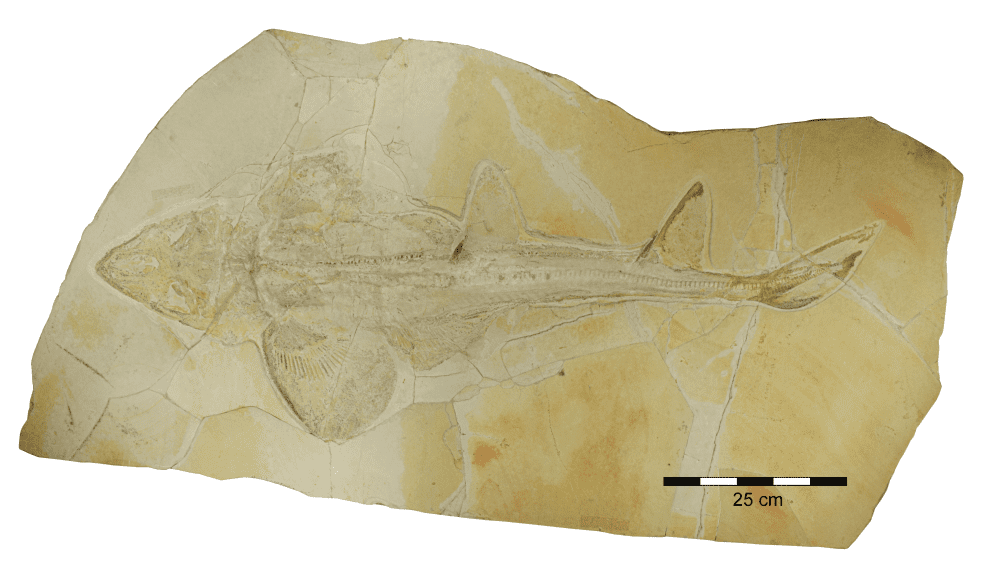A rare fossil that’s preserved the body of a shark from the Jurassic has enabled scientists to try and work out if the species represents a missing link between sharks and rays, or a primitive ancestor of both groups. As it happens, neither theory was correct, as a look into its adaptations showed that it was already highly evolved.
The history of sharks goes back before the time of the dinosaurs to around 400 million years ago, and as a group they’ve survived all five mass extinction events, meaning there are many veins to follow along their family tree. However, studying them isn’t very easy because they are cartilaginous fish, meaning they don’t have a bony skeleton and therefore mostly only end up in the fossil record as teeth.
An exception to this rule is the Konservat Lagerstätte in Bavaria, Germany, where Late Jurassic vertebrates (bony and cartilaginous alike) have been stamped into rock with imprints of their skin, muscles and other soft tissues visible. Like flowers in a press, they reveal an insightful (if not a little two-dimensional) view of animals we rarely find specimens of.
One species squished into the Konservat Lagerstätte press was Protospinax annectans, a known species with a lot of unknowns about its placement in the shark family tree. It was swimming around in all its three-dimensional glory around 150 million years ago, with a body that stretched to around 1.5 meters (5 feet).

Definitely one for the stamp collection. Image credit: Sebastian Stumpf
Whether it was the missing link between sharks and rays, or a primitive ancestor of both groups had been a topic of debate for some years. So, researchers used the specimen to take a closer look at its unknown role with the aid of genetic data (mitochondrial DNA) and morphological data to reconstruct the family tree of sharks.
Their results revealed a surprising third outcome for Protospinax‘s place, which shares traits of both sharks and rays. It wasn’t a missing link, nor a primitive ancestor, but instead a highly evolved shark .
“We tend to think of evolution like a hierarchical, ladder-like system, in which older groups are at the base, while humans, as a very young species in Earth history, are at the top,” said study author Patrick L Jambura in a statement.
“In truth, however, evolution has never stopped even for these primitive representatives, but they continue to evolve day by day via changes in their DNA, just as we do. This is the only way they have been able to adapt to constantly changing environments and survive to this day.”
As for why Protospinax went extinct while other morphologically similar shark species were spared isn’t clear, but it seems this animal was no stepping stone or doorstop in the epic story of sharks’ rich past.
The study was published in the journal Diversity.
Source Link: Rare Jurassic Shark Fossil Shows They Were Highly Evolved 150 Million Years Ago